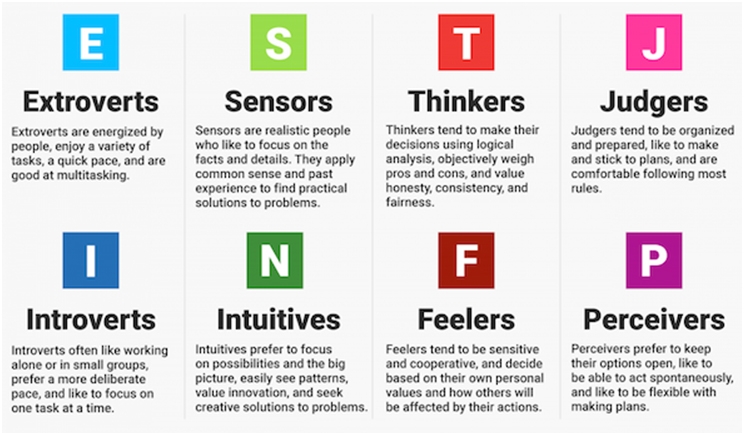
When much of your customer face time is spent with your fingers in their mouths, you may not think communication ranks as one of your most vital skills in your dental repertoire. But in reality, your ability to communicate well has a great impact on how you interact with everyone in your life, whether it’s your customers, your coworkers, or your family. Regardless of your personality and natural communication style, though, there are ways you can improve your business and your personal life by understanding your personality type.
A 20-year longitudinal study conducted by Creighton University of dental graduate students revealed that a striking number of them fell into two similar personality types, as defined by the Myers-Briggs Type Indicator (MBTI): introversion, sensing, thinking, and judgement (ISTJ) and extroversion, sensing, thinking, and judgement (ESTJ).
The MBTI classifies personalities into 16 types across four axes: Introversion versus Extroversion, Sensing versus iNtuition, Thinking versus Feeling, and Judgment versus Prospecting. The “dentist” personality types are typically pragmatic and practical (S), logical and objective (T), and organized and decisive (J). The difference between ISTJs and ESTJs is how they recover their energy, be it through alone time or social interaction. Sound familiar?
Applying Traits to Your Office
But what does all that mean, and how can understanding our personality and communication style make us better dentists, managers, and coworkers?
ISTJs and ESTJs share many traits that make for great dentists. They’re dedicated workers who value order, structure, and high standards. When they communicate, it’s honest and direct, based on facts and logic rather than intuition and feelings.
Consequently, when these traits are pushed too far, other people can see them as stubborn or judgmental. People with these traits also may be perceived as disregarding others’ feelings in the face of facts and practical action. They may have a tendency to take too much on their shoulders as well, holding themselves to unreasonably high standards.
When communicating with customers and coworkers, dental professionals need to be aware of how their personality may impact the way they communicate and must learn how to emphasize strengths while minimizing weaknesses.
For example, when a dental assistant (a popular position for the ENFJ personality, which values discussions of feelings and concepts) confides in you about personal problems at home, the side of you that abhors abstract and emotional issues will likely search for a concrete and practical solution to the problems presented.
Resist this. Try to listen and understand what they’re telling you, as most often ENFJs are actually hoping to have you serve as a sounding board. If they want advice, they’ll ask, and then you should feel free to unleash your problem-solving skills and share your suggested solutions.
Understand that not all personality types share your value for going above and beyond when it comes to meeting standards and responsibilities. The J (for judgment) in ISTJ and ESTJ types may quickly offer criticism when their high standards are not met, which may lead to micromanaging.
While maintaining high standards is a strength, it’s important to remember that your critical judgments can be shared in a more positive way if you take the time to think through how to best encourage others to share your penchant for perfectionism. Maintaining high standards is an inherent strength for ISTJs and ESTJs.
A better understanding of your own personality and that of your colleagues will create a more enjoyable, more productive work environment. Encourage your coworkers to take the MBTI at 16personalities.com and take one yourself. You’ll be glad you did. The results will give everyone a better insight into the most effective ways to work together, and your office will be all the better off for it.
Ms. Morrow is the director of professional relations at Delta Dental of Arizona. She has more than 30 years of combined experience working in the dental insurance industry and managing dental office operations. She can be reached at kmorrow@deltadentalaz.com.
Related Articles
Build Your Dental Career Around Your Personality
How to Recruit and Hire Great Dental Employees
How to Deal With Conflict on Your Dental Team











